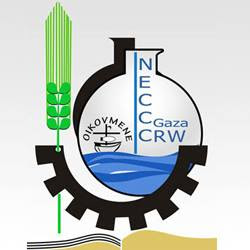
Moodle Expert - NECC
Project title: Mosharaka Virtual Platform to Support Entrepreneurship in the MENA Region
Location: Egypt, Palestine, Lebanon (Pilot phase)
1) Project presentation
The Mosharaka Virtual Platform project aims to support vulnerable populations in the MENA Region, especially youth and women, gain access to decent work and enjoy better social inclusion through improved access to entrepreneurial education resources. Currently in a pilot phase, Secours Catholique and its 5 NGO partners (described below) are developing an Arabic-language virtual platform of educational tools and resources.
The general objective of the Mosharaka Virtual Platform project is to support young people in the Middle East who wish to start their own business, and particularly youth and women, in acquiring the necessary skills for developing sustainable businesses, with the longer-term aim of strengthening access to decent work and income.
Specifically, the pilot phase platform will offer the following resources:
- Country-specific entrepreneurship guides with information regarding registration procedures, financing possibilities, market specificities
- A self-paced introductory online course in Arabic (MSA) that assists learners in discovering entrepreneurship, followed by the essential basic skills to start a business (understanding markets, business planning, marketing, financial management, etc.)
- Directories of online and offline entrepreneurship education and support resources, in Arabic and other languages
- Virtual, and safe, spaces for exchange and networking on a regional level
- Possibility of requesting individualized coaching/mentoring support.
a) Beneficiaries
Target group: Up to 500 pilot phase beneficiaries, 18-35 years of age, facing economic and/or social difficulties, including unemployment or underemployment, with at least 50% young women, all beneficiaries demonstrating a basic level of literacy and digital skills Location: Virtual/Partner NGOs located in France, Egypt, Palestine, and Lebanon.
b) Project Partners
Project Partner
Description/Role in the Project
Role in the Project
Secours Catholique – Caritas France (SCCF)
French NGO and member of the Caritas Internationalis global network. SCCF is committed to fighting against poverty, exclusion and inequalities, and promoting the development of each person.
Initial financial and technical support to gather experienced project partners and coordinate work to develop, launch, and test virtual platform with relevant entrepreneurship education and support resources.
Etijah- Egypt
Egyptian NGO focused on supporting youth economic empowerment, health education and community development; has been an SCCF partner since 2015 with projects to support youth employability and entrepreneurship.
Co-developing and co-managing the Mosharaka platform, including mapping resources and participating in the development of platform content; recruiting up to 100 pilot phase beneficiaries in order to test pilot platform, monitoring and evaluating usage for continued improvement and potential expansion
Egyptian Association for Comprehensive Development (EACD)- Egypt
Egyptian NGO supporting persons facing economic and social difficulties in isolated rural areas and suburbs of Greater Cairo, Fayoum, and Upper Egypt in the fields of health (physical and psychological services), education (early childhood and teenage), economic empowerment (non-financial and financial services) and social inclusion (for women, refugees and PWD); new partner of SCCF.
Caritas Jerusalem- Palestine/West Bank
Palestinian NGO that strives to respond to the social, economic, health and humanitarian needs of the Palestinian population; SCCF has previously partnered with Caritas Jerusalem in projects to support elderly persons, persons facing drug addiction, and communities marginalized in rural areas and Gaza.
Near East Council of Churches (NECC)- Palestine/Gaza
Gaza-based NGO operating in 6 key sectors: Health (maternal and child), Technical and Vocational Education and Training, psychosocial support, and emergency programs; SCCF has previously partnered with NECC on projects related to supporting young people through vocational training and social inclusion activities.
Development for People and Nature Association (DPNA)- Lebanon
Lebanese civil society organization founded in 2003 to support marginalized populations in Lebanon as well as to promote a healthier environment. DPNA has strong experience in supporting young people and women in vocational training, the creation of agricultural cooperatives, and the development of small businesses in urban centers and rural areas, including businesses focused on ecotourism; new partner of SCCF.
2) Objectives of the consultancy
a) Overall objectivesThe overall objective of the consultancy is tosupport the project partners technically in understanding how to use the basic features of Moodle LMS and guidance in finalizing the pilot version of the virtual platform.
b) Specific objectives:
- Overview of basic features of Moodle LMS, tailored for beginner learners from non-IT backgrounds.
- Guidance on adapting current course content to online experience and identifying appropriate Moodle features for content.
- Guidance on improving design and maximizing user-friendliness
- Guidance on maximizing interactive approach.
- Provide recommendations for future directions for the platform.
c) Desired Methodology>
- Hands-on online sessions with the project partners focused on mastering the most basic elements of Moodle necessary for the pilot phase content (creating interactive courses, forum spaces, static information spaces, enrolling and managing users, generating reports, troubleshooting).
- Hands-on online sessions focused on making current content more interactive for learners.
The Consultant must fulfill the following requirements:
- Experience in E-learning, LMS Design and Management.
- Experience in Moodle system.
- Experience in teaching technology using learner-centered techniques and adapted for non-IT specialists.
- Knowledge of MENA region.
- Experience in gamification a plus.
- Experience in inclusive online design for Persons with Disabilities a plus.
- Excellent communication and interpersonal skills.
- Flexibility and adaptability.
- Proficiency in English and Egyptian/Levantine Arabic.
- Compliance with Secours Catholique’s Code of Conduct (attached).
4) Timeframe of the evaluation mission
The Consultancy should take place between July-August, 2023.
Selection and contract signature by end-June 2023.
Sessions to start by early July 2023.
5) Expected outputs
Written summary of recommendations for future directions for the platform (Arabic/English).
6) Application process
Only duly registered independent consultant or employee of a consulting firm may answer.
Application should include:
- Letter of interest.
- Proposed work plan, methodology, and timetable.
- Detailed Budget – with breakdown of cost per hour.
- Curriculum vitae.
All proposals should be submitted by June 16 2023 to:
dept.personnelappuiexterne@secours-catholique.org